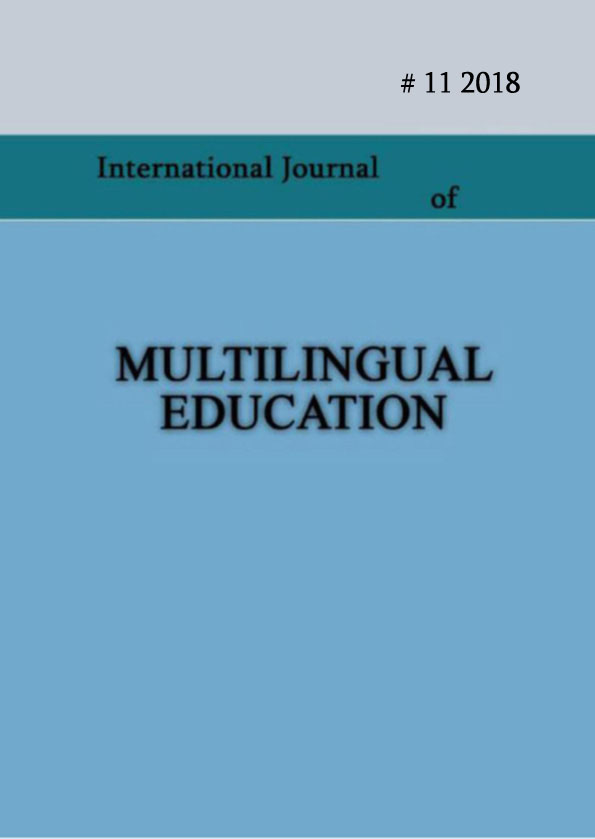Multilanguage Strategies in Tertiary Education (Using the example of Georgia)
Keywords:
Language teaching, Multilingual strategies, integration of ethnic minorities into society.Abstract
This paper discusses the issues of multilingual education in Georgia using the example of teaching Georgian as a state language and English as a foreign language to the representatives of ethnic minorities of Azerbeijani and Armenian origin. The data are based on the findings of the project “Elaboration of Multilingual strategies for integration of ethnic minorities into society (using the example of Georgia)” carried out at Tbilisi State University.
Having explored the problems and challenges students of ethnic minorities face in Georgia, the article offers several recommendations.
References
CEFR -Common European Framework of Reference for Language, 2001;
Rusieshvili et al (2016 a). - Manana Rusieshvili, Izabella Petriashvili and Kakha Gabunia, Multilingual Strategies for intergration of ethnic minorities into society (Using the example of Georgia), In: International Journal of Multilingual Education, #3, 2016: 60-69.
Rusieshvili et al (2016b). -Manana Rusieshvili, Izabella Periashvili and Kakha Gabunia, The enhancement of state and foreign language teaching to national minorities in Georgia (using the examples of Azeri and Armenian students),. In: International Journal of Multilingual Education, 9, 2016: 55.
Tabatadze, S. , Gabunia, K.& Odzeli, M. (2008). Recommendations on Language Policy to Protect Linguistic Minorities. CCIIR. Tbilisi. Georgia.
Tabatadze, S. (2014). Positive Effects of Bilingualism on Cognition and Language Acquisition: International Journal of Multilingual Education, #3, 1-12.
Tabatadze, S. & Gorgadze, N. (2013. Evaluation of the Effectiveness of the Quota System in Georgia. CCIIR. Tbilisi. Georgia.
Published
How to Cite
Issue
Section
License
Copyright (c) 2018 Manana Rusieshvili, Kakha Gabunia, Izabella Petriashvili

This work is licensed under a Creative Commons Attribution-NonCommercial 4.0 International License.
Copyright (c) - Authors who publish with this journal agree to the following terms: Authors retain copyright and grant the journal the right of first publication with the work simultaneously licensed under a Creative Commons Attribution-Noncommercial 4.0 International License, which allows others to share the work with an acknowledgement of the work's authorship and initial publication in this journal. Authors are permitted and encouraged to post their work online (e.g., in institutional repositories or on their personal website) prior to and during the submission process, as it can lead to productive exchanges, as well as earlier and greater citation of published work (see The Effect of Open Access). Authors may enter into separate, additional contractual arrangements for the non-exclusive distribution of the journal's published version of the work (e.g., post it to a repository or publish it in a book), with an acknowledgement of its initial publication in this journal.

